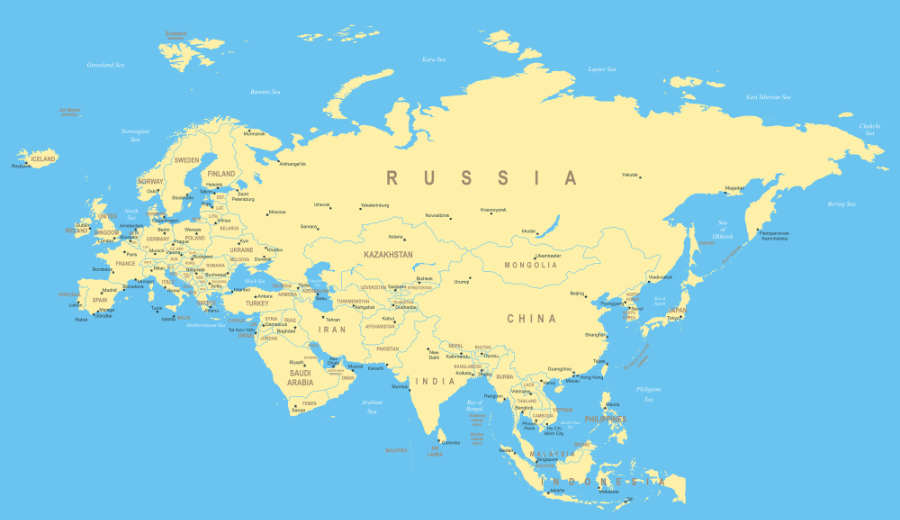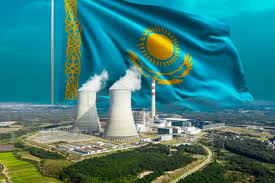The Russian President, Vladimir Putin, has met with Kassym-Jomart Tokayev, the President of Kazakhstan, in Moscow. This follows an Intergovernmental Commission meeting held in Astana a few days earlier, which we discussed here.
Russia and Kazakhstan are both neighbours, ex-Soviet Union partners, and members of the Commonwealth of Independent States, the Eurasian Economic Union and the Collective Security Treaty Organisation. Kazakhstan is also a BRICS partner state, and holds a key role in being a primary transit nation between Russia and China.

Tokayev has stated that Kazakhstan and Russia are to elevate their bilateral relations to a comprehensive strategic partnership that will establish what he characterized as a new era in their alliance. He emphasized that the partnership between Astana and Moscow exerts decisive influence on regional processes across Eurasia and represents a crucial stabilizing factor for the continent.
Tokayev said that the strategic partnership would confirm “an unprecedented level of mutual trust and shared commitment to closer cooperation in all areas.” He highlighted substantial economic integration between the nations, with more than 170 joint projects valued at over US$50 billion currently underway involving major Russian corporations including Sibur, Gazprom, Lukoil, EuroChem, Tatneft, and KAMAZ. Energy collaboration and logistics infrastructure development represent central pillars of the economic partnership, with ongoing modernization of border crossings and expansion of transit corridors such as the middle section of the International North-South Transport Corridor, which connects Kazakhstan with Russia, Turkmenistan, and Iran.
Nuclear Power

Tokayev also pointed out that the development of nuclear power projects between the two countries was a primary part of the Strategic Partnership. Agreements concerning the development of NPP in Kazakhstan were signed off earlier this year following a 2024 public referendum on the subject.
Tokayev said, “Our combined efforts ensure continuous transit of Russian energy to China and Central Asian states. We are building and upgrading major energy facilities. The construction of Kazakhstan’s first nuclear power plant by an international consortium led by Rosatom will be a core project in this area. Building the NPP will enable our country to develop a full nuclear fuel cycle, from mining uranium to generating electricity. Besides, the project unlocks new opportunities for transfer of technologies, training of specialists, creation of jobs and development of associated industries, such as mechanical engineering and instrument making.” Tokayev said.
Rosatom is to build the first NPP in Kazakhstan, with the company saying that they have signed a roadmap for building two VVER-1200 reactor units. The construction will take about 11 years and may be completed in 2035-2036. A Russian state export loan is being considered as the source of funding, which Tokayev has been discussing with Putin. Up to 10,000 specialists will build the plant, and about 2,000 will be operating it. Site surveys began near Ulken in Kazakhstan’s Balkhash region on August 8. During these preliminary explorations, Rosatom specialists will examine at least three sites in the Zhambyl region by drilling 50 wells with a depth of 30 to 120 meters. The NPP location will be chosen with due account of hydrogeological features of the terrain, seismic stability, and other parameters.
Mining Projects

Tokayev will also be looking for Russian assistance to help develop Kazakhstan’s gold, copper, manganese, and phosphorite reserves, with plans to expand exploration for ore minerals in the coming years. The country has recently uncovered five new deposits at Kok-Zhon (Bolattobe Block), Altyn-Shoko, Samombet, Studenchesky, and Takyr-Kaldzhir.
The increase in Kazakhstan’s reserves amounts to about 98 tonnes of gold, 36,000 tonnes of copper, 11 million tonnes of manganese, and more than 1.3 million tonnes of phosphorites.
Kazakhstan mined 161 million tonnes of copper ore and 130.3 tonnes of gold in 2024.
Tokayev underscored the importance of linguistic and cultural cooperation, describing the Russian language as “an integral element” of Kazakhstan’s social and educational landscape. He characterized the broader humanitarian ties as strengthening “dialogue and trust between peoples” while positioning the bilateral relationship as “vibrant and dynamic, capable of flexibly responding to the challenges of the new era.” The partnership, according to the Kazakh leader, will continue serving as “a bulwark of creation, security, and cooperation for the entire continent.”
For further intelligence on Russia-Kazakhstan trade, investment and cooperation, please click here
Further Reading
Russia and Kazakhstan Discuss OPEC+, Oil and Gas Transit & Nuclear Power Developments

 Русский
Русский













